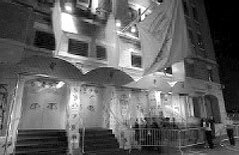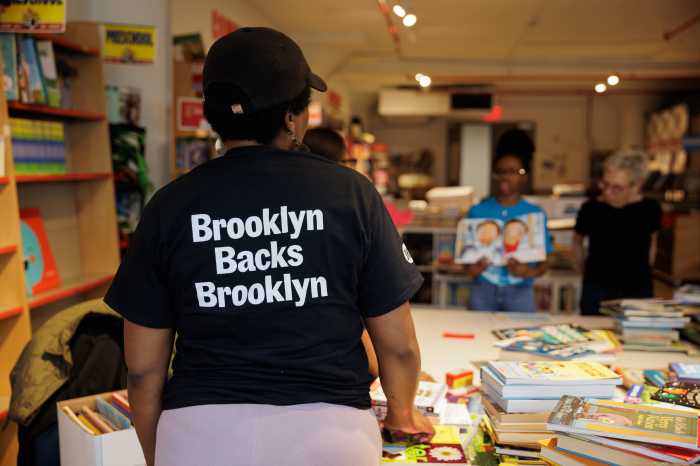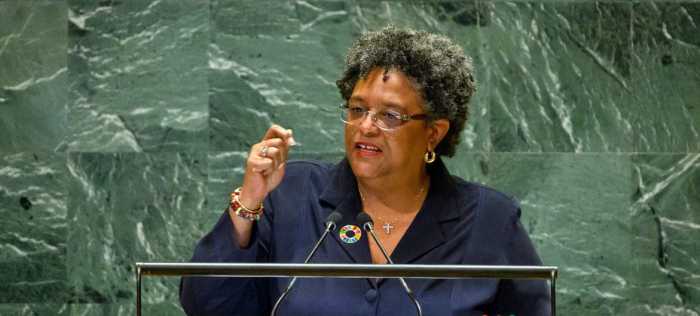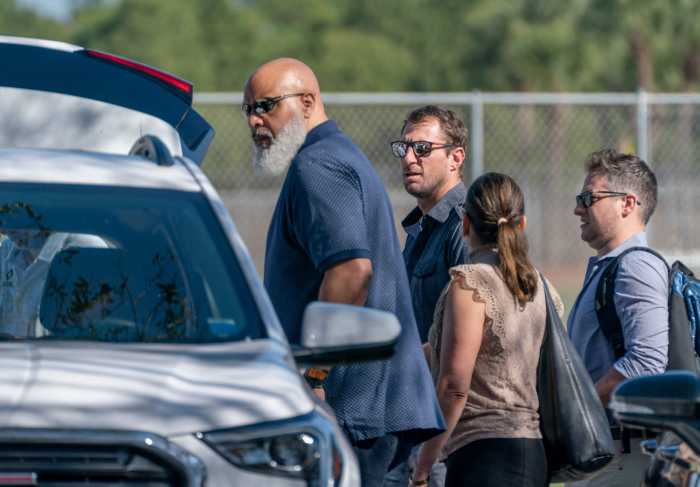DEA arrests club owner, personnel for selling crystal at storied gay nightclub
The latest crack down came on March 7 when the Drug Enforcement Administration (DEA) and New York City police raided the Sound Factory, a nightclub located on West 46 Street. Police arrested Richard Grant, the club’s owner, Ronald Coffiel, director of security at the club, and Randell Rogiers, Coffiel’s deputy.
In a five-count federal indictment that was unsealed on March 7, the three men are charged with providing a location and conspiracy to provide a location for the “distribution and use of narcotics,” conspiracy “to aid and abet narcotics distribution” and two counts of “aiding and abetting narcotics distribution.”
The government also wants to seize any of Grant’s property, including the club that was used in the alleged conspiracy, along with $18 million.
Between May 2001 and February 2004, undercover local and federal officers made “approximately 90 different purchases of illegal narcotics inside Sound Factory,” according to the indictment.
Some of the more than 40 sellers were club employees including members of the security staff who were supposed to be preventing drug use and sales in the club, according to the indictment. The drugs purchased included ecstasy, special K, GHB, crystal meth, cocaine, and marijuana.
The indictment alleges that between June 2000 and February 2004, 18 people required medical attention after overdosing at the club and another two died there from drug use.
The city has twice tried to close the Sound Factory, in 1999 and in 2003, using its nuisance abatement laws, but the club prevailed in court both times. The club’s attorney said it was a safe business.
“Richard Grant has owned the Sound Factory for 14 years,” said Kenneth J. Aronson. “It’s more than a business to him, it’s his life and he prides himself on doing a good job. His goal was to have a safe and entertaining environment.”
Aronson pointed to the two failed closing efforts and a third attempt by the city to shutter the club as evidence of Grant’s successful efforts to operate a clean business. Those were civil cases and the burden of proof for the city was lower than in a criminal case.
He said that the club had “elaborate security and screening procedures,” but with thousands of patrons it was impossible to keep out all the drugs.
“We don’t deny that those drug purchases took place at the club, but what goes on in a club is a reflection of what goes on in a larger society,” Aronson said. “They want a situation where an undercover officer goes in there 100 times and can’t buy drugs.”
On February 19, David N. Kelley, U.S. Attorney for the Southern District of New York, held a press conference to announce the arrests and indictments of eight men who are charged with possessing and selling crystal meth.
The higher profile police activity comes as the Bush administration has proposed slashing the crystal meth enforcement budget at the U.S. Department of Justice from $54 million in the current fiscal year to $20 million next year.
Activists who have battled crystal with ad campaigns, among other efforts, did not necessarily welcome law enforcement to the fight.
“I’m against it,” said Peter Staley, a longtime AIDS activist who, with Vincent Gagliostro, placed anti-crystal ads on phone booths in Chelsea. “Just as our nation’s war on drugs has been a failure, the DEA’s war on crystal meth will be an utter failure.”
In Staley’s view, crystal addiction is a healthcare problem that should be addressed with prevention and treatment, not arrests and jail sentences.
“It should not be a criminal problem,” said Staley, a recovering crystal addict. “Locking people away does no good and instead it puts some otherwise wonderful people in jail… I personally know former crystal meth dealers who have gotten clean and are now living examples of a really wonderful recovery.”
Chris Starling, also a recovering crystal addict, approved of the Sound Factory busts because they targeted, allegedly, serious dealers and not addicts who are selling to support their use.
“I think what they did at Sound Factory was great,” Starling said. “I think it needs to be more of that instead of arresting these little people who are supporting their habit.”
Starling expressed frustration that other businesses have not been targeted. He named two Chelsea sex businesses where he said drug use, drug sales, and unsafe sex were rampant. Those businesses have gone largely unnoticed, apparently, by law enforcement.
Starling is one of four gay, recovering crystal addicts who are creating a public education campaign targeting crystal use that will be launched during the Black Party weekend on March 20. He opposed arresting crystal users.
“They are arresting a lot of people who are addicts,” Starling said. “All the police are doing is arresting these people who are supporting their habit. They need to be in treatment not getting put in jail… I know guys who have been in jail. They are good guys. They are just drug addicts.”
Dan Carlson who, along with Bruce Kellerhouse, has produced a series of town meetings on HIV and gay men, including a February 8 event on crystal use among gay men, was resigned to the police action.
“I think it’s law enforcement,” he said. “This is what they do. They sniff this stuff out and they enforce the law.”
Carlson has organized a March 30 town meeting, to start at 7:00 p.m. at the Lesbian, Gay, Bisexual and Transgender Community Center, titled “Crystal Meth and the Law.” Panelists will include Isabelle A. Kirshner, a criminal defense attorney who has represented gay men who were charged with crystal meth possession, Christopher Giovino, associate special agent in the DEA’s New York Division, and David Esseks, chief of the narcotics unit in the U.S. Attorney’s office for the Southern District.
Carlson may add additional panelists. The topic could not be more timely.
“It demands a dialogue between the community and law enforcement,” Carlson said. “I’d like to see the community unite and come together so that we can take action ourselves so that law enforcement doesn’t have to do it their way as much.”
0



































